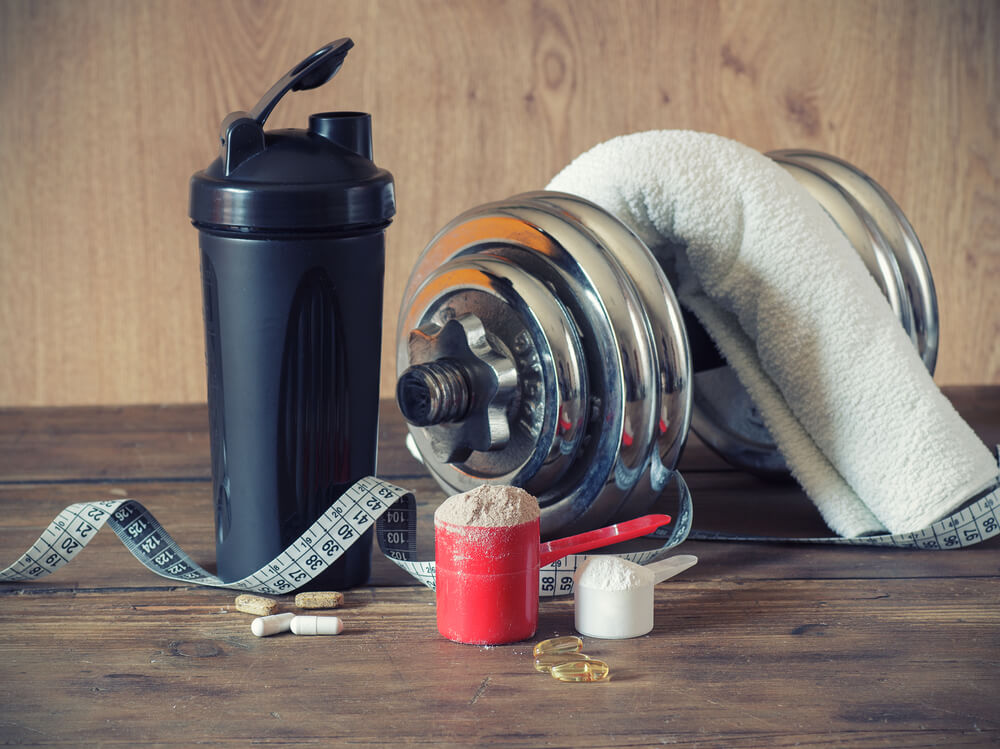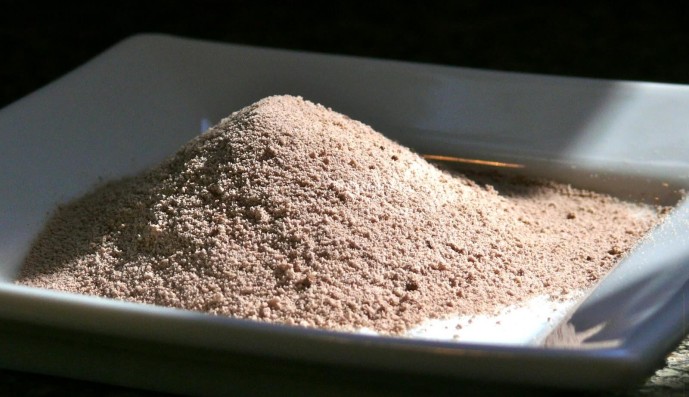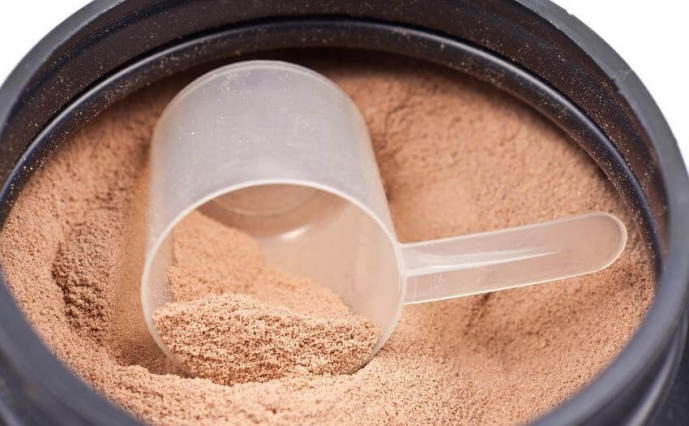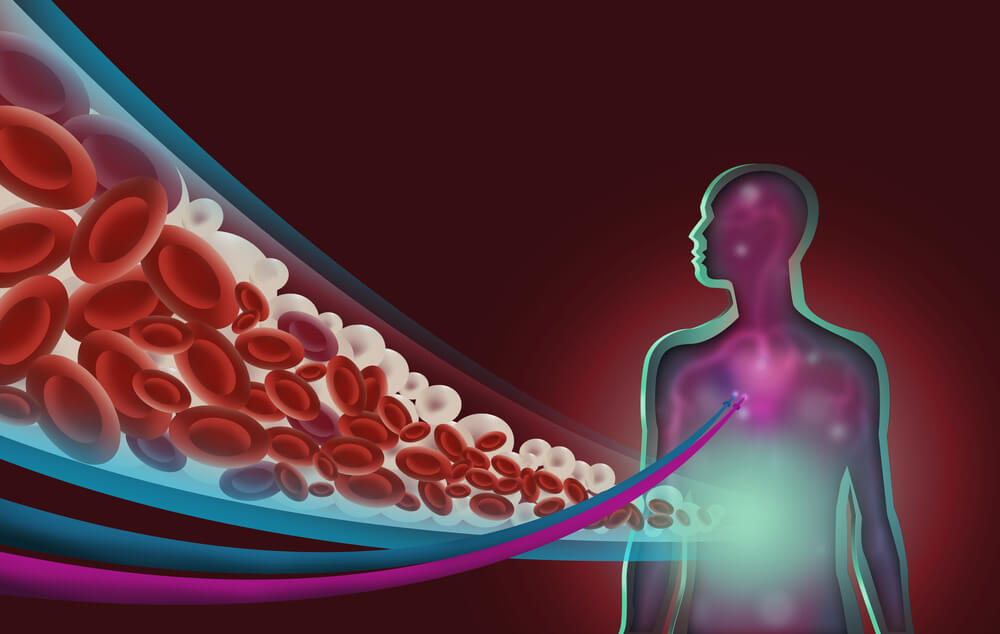
At this point, you’re probably well aware that protein is a key building block for muscle recovery and growth.
Today we’ll answer the questions of how much protein do you need, the best sources and when to eat it.
Here’s an example of a question I hear all the time:
“When I asked my trainer how much protein do I need to build muscle, they told me that I should put a limit on protein because my body can only use 25 grams per meal. Is that true?”
The answer may not be that simple. This can be a complex issue with fitness nutrition. Sometimes the numbers contradict themselves because it’s not a simple matter of a gram to lb conversion of protein by body mass. There are many considerations to take into account and different bodies digest protein with different levels of efficiency.
If it were a blanket truth that the body can only absorb a max amount of protein per meal and then will dump the rest, humans would have died out long ago. If you think of ancient humans, many hunter and gatherers would have eaten large amounts of fresh protein right after the hunters returned.
So, what are the limits?
How much protein can our body use at one time?
How many times a day should you eat protein when you need to build muscle?
How many protein shakes a day will you need to build muscle?
Understanding How The Body Uses Protein
To really get an understanding on what to eat and when, it helps to first have an understanding of what happens inside your body when you eat protein. Protein is the essential building block for muscle growth. Let’s see review how it works.
Where does it go and what does it do?
Protein is actually made up of a smaller particle called amino acids. After you eat protein, the digestive system works to break down your food into those smaller amino acids. The only limit to how much protein your body can use at one time is the number of transporter cells circulating in your body. These specialized cells pick up nutrients that pass into the bloodstream through the intestinal wall. Some of them are specific to amino acids.
When you hear about the body absorbing protein, this refers to how long it takes for the digestive system to break it down into the amino acids and get them into the bloodstream where they can be picked up by the right cells and used where your body has a need for repair and regrowth.
Next, it’s also important to understand that the speed is also affected by the kind of foods in your digestive system. Based on the food type, the body sends signals to release different kinds of digestive enzymes. It also speeds up or slows down the intestinal contractions. Fats need to be broken down by bile salts, so bile is released. Because fats digest quicker, the body speeds up the intestinal contractions.
But proteins cannot be absorbed intact. The start as a whole protein, then break into an amino acid chain, then break down further into the individual amino acids. So, proteins slow digestion down so that there is time to break it down into the amino acids chains which can be absorbed (this is important).
This process uses a lot of energy and is why experts say protein gives your metabolism a boost by producing heat as the energy is burned in the process of breakdown and absorption. They call this a thermic effect.

What happens when amino acids enter the bloodstream?
Once they are broken down in a in a usable form, amino acids will be used to repair muscles and other body parts, and help when you need to build muscle and other cells. The processes is called anabolism. It’s a term you will hear mentioned a lot in muscle building circles, so it’s helpful to know what it means.
Anabolism takes the amino acids and hormones like growth factor and testosterone and uses them to build or repair muscle. This has led some people to consider supplementing these hormones. That’s why you will find ads all over the place encouraging you to try growth-factor supplements. However, research has concluded that these often do not result in significant gains.
25 Grams of Protein Per Meal?
Researchers at Texas A&M University set out to prove or debunk the idea that 20-30 grams of protein was the maximum amount per meal that the body could use anabolically.
It’s been hard to track down where this particular number came from The Texas A&M researchers concluded that there was no foreseeable limit on the amount of protein that the body can use in one meal through anabolism.
So, if anyone wants to argue with you on that one, there is your scientifically proven, definitive answer. Check out that study for more info—and keep eating if you want to grow!
How Much Protein Do You Need And Where does the confusion come from?
Nutritional science is constantly evolving. Our understanding of the human body makes significant progress every year. Sometimes this means that fitness professionals and nutritionists were trained and certified with information that is no longer considered best practices. This is why it’s so important to make sure you’re getting your health advice from people who never stop learning!
Remember, there is no one size fits all approach to fitness.
- Digestion Happens at Different Speeds
One common misconception that is still all too popular is that all food moves through your system at a set rate of speed. If that was the case, the idea that eating too much protein might be more credible.
However, as stated above, the digestive system slows in response to protein, allowing for it to be fully absorbed. You would have to really overdo it to eat so much it couldn’t be transported.
- If You Have More Muscle, You Need More Protein To Maintain It
This part should make logical sense. Maintenance. The muscle mass you have needs to be maintained. At any given time, you are either gaining muscle, losing muscle or maintaining your muscles.
When you are calculating how much protein you want to have available to your body to use, you have to factor in how big you are right now. The recommended value is .36 gram to lb of body weight or .8 gram to kg. But that is going to be your bare minimum to maintain your current body weight. Research has shown that the ‘recommended level’ is actually too low.When you are looking to grow, you can start by eating .36 gram to lbs of body weight you are trying to reach. You will hear many bodybuilders eat 1 gram to lb of body weight.
- What Level Are Your Hormones At?
I mentioned before that research has concluded that supplementing growth hormones (GH) will not lead to additional gains. That statement was in regards to people who had normal levels of those hormones. The same research also states that there were gains with supplementing when hormone levels were low to begin with.
The anabolic state uses GH and amino acids to repair and build muscle, so if you are low on either one, you are going to have difficulty gaining. Have your hormone levels tested if you suspect this is a factor.
- How Much Activity Are You Doing?
How much work or output you are performing in your workouts will affect how much protein you need. When you get your muscles hot, they use protein for energy demands and then for repair and new growth.
Protein needs for athletes are still misunderstood by the nutrition and scientific communities. In order to determine how much protein you need for the day, you should first take a look at your workout for the day and adjust your intake accordingly.
Every few weeks, you should evaluate your gains and recalculate your protein based on what you are seeing. The more carefully you dial in your diet, the more sense you will have of when your body is running on optimum nutrition. You should feel like a well oiled machine.
Okay, so now that you know they sky is the limit on the anabolic growth state, how many protein shakes a day do you actually need to keep building muscle?
How well your body uses protein depends on several factors.
Your body needs more protein for muscle maintenance as you age.
- What Is Your Current Stress Level?
Stress releases cortisol into the brain. Cortisol is damaging to the body on many levels. It will arrest your body’s ability to use protein. It basically messes up what your body is doing by telling it to break down the amino acids you need to build muscle into sugar instead. This means you should take the time out of your day and focus on your well-being and relaxation—it could really pay dividends in muscle growth, not to mention improving your quality of life.
You do not need to limit how much protein you eat at one meal. If someone is telling you that you can only use 25 grams or so, they are misinformed. They might mean well, but this is your body, and now you’re armed with the facts.
The body also uses protein in temporary energy stores throughout the day. You don’t have to eat protein every few hours, just as long as you pay attention to your total or net daily protein intake.
Many sleep specialists tell you that about 4 oz of protein is a much better bedtime snack than carbs or sugar. It will help your metabolism through the night.
So how many protein shakes a day? As many as you need to fill in the gaps in your diet and reach up to a gram per lb of body weight for muscle growth.

Supplementing
Amino acid supplements are partially broken down protein. If there is problem with getting them this way or not, is based on your goals. If you only need to build muscle, they can be helpful as another way of getting protein in your system fast.
However, if you were wanting to boost your metabolism or burn any fat, you will be losing the thermic properties. When you eat protein from whole foods and it slows down your system to break it down, this generates thermic energy. This is the use of energy already in the system to break down the food that has just arrived in the system down into it’s smaller parts.
The other thing to consider when looking at supplementing is the cost. Sometimes it costs more than buying the whole foods. There are amino acid pills and tablets that can cost as much as 10x more per gram of protein equivalence than a gram of whole food. If you do choose to use a supplement, a cost efficient, clean whey supplement like Gym Junkies Protein Build is your best bet.
The Final Action Plan
When you’re planning your attack to increase your protein intake for growth, there is nothing wrong with supplementing with shakes and powders if that is what works for you. Don’t forget that how many shakes a day you drink is not the only factor in your success. Protein powders are simply a convenience to add to your hard work, smart recovery, hydration and complete nutrition plan. They can help you get the equivalent of a meal of protein in one drink. You should also get musch of your protein from whole foods, especially if you want to keep your metabolism fired up.
Just remember this formula:
- Start with the recommended value of .36 grams to lb of your body weight or the weight you’re trying to grow to.
- Double that number, as you saw above, those old recommendations are too low.
- Adjust based on your activity level and the other factors like stress.
- Try it for a couple of weeks to see how you feel and what progress you’ve made!
-Terry Asher
Terry
Latest posts by Terry (see all)
- How Important Are Net Carbs For Building Huge Muscle? - Apr 28, 2017
- The Matt Damon Workout Explained - Apr 27, 2017
- Watercress – Benefits And The Best Way To Consume It - Apr 26, 2017










This is the best article I’ve read about this 😀
Hey Sassi,
Well, thank you we appreciate it!
Terry
As for me, so the protein can not be consumed in the form of supplements, if you have a good intestinal flora, then you need to workout to bear fruit! they give you energy and health, and the protein you will develop a microflora, eating fiber! Personally I carry a backpack and a few oranges, and I have enough to maintain body and muscle tone
Yes, 1 gram of protein per kg of your body weight is essential. Also, do not cut off your carbs intake completely.
Susan yes that’s very important to note!
Thanks for stopping by!
Terry Asher